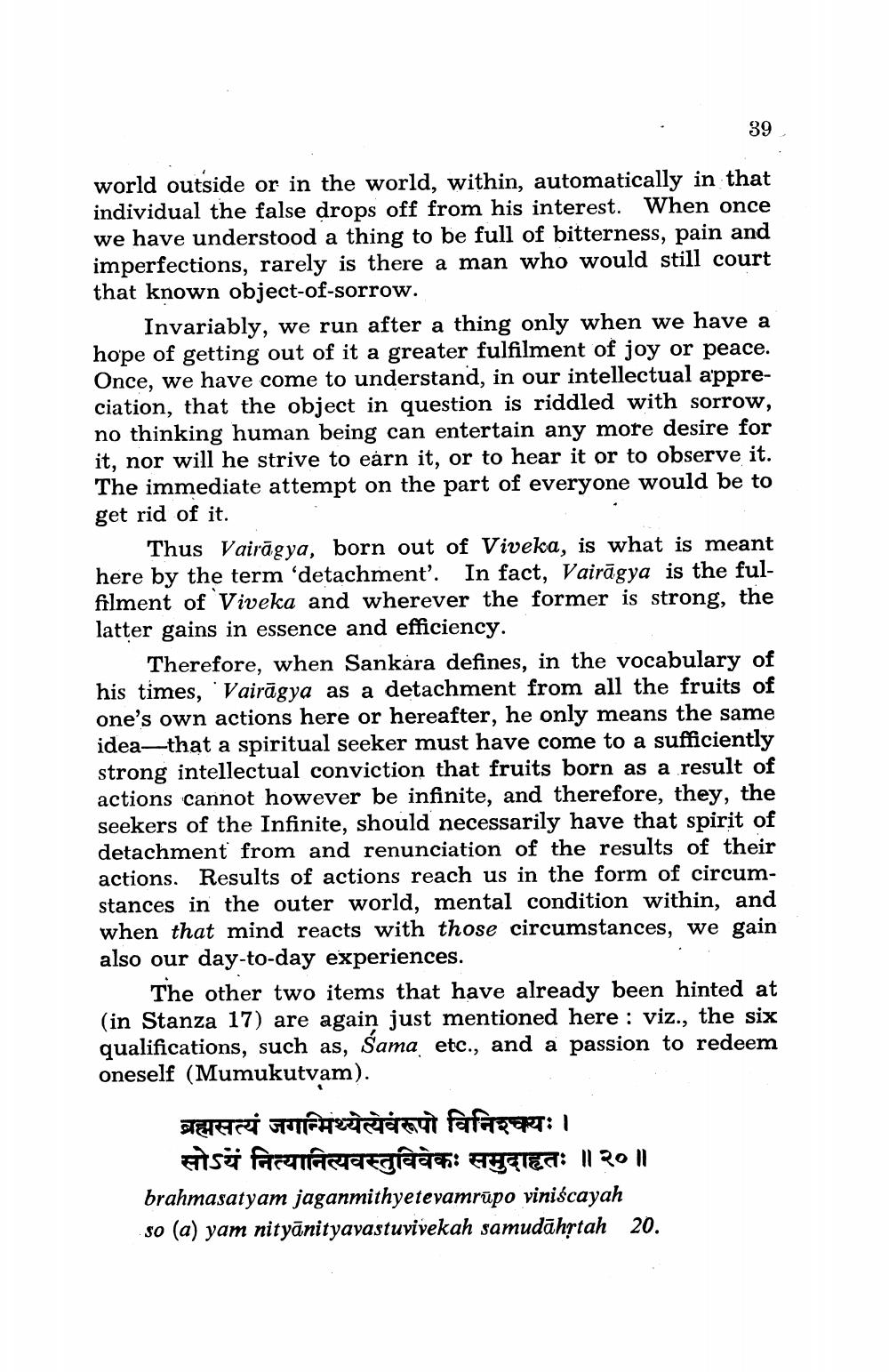________________
39
world outside or in the world, within, automatically in that individual the false drops off from his interest. When once we have understood a thing to be full of bitterness, pain and imperfections, rarely is there a man who would still court that known object-of-sorrow.
Invariably, we run after a thing only when we have a hope of getting out of it a greater fulfilment of joy or peace. Once, we have come to understand, in our intellectual appreciation, that the object in question is riddled with sorrow, no thinking human being can entertain any more desire for it, nor will he strive to earn it, or to hear it or to observe it. The immediate attempt on the part of everyone would be to get rid of it.
Thus Vairagya, born out of Viveka, is what is meant here by the term 'detachment'. In fact, Vairagya is the fulfilment of Viveka and wherever the former is strong, the latter gains in essence and efficiency.
Therefore, when Sankara defines, in the vocabulary of his times, Vairagya as a detachment from all the fruits of one's own actions here or hereafter, he only means the same idea that a spiritual seeker must have come to a sufficiently strong intellectual conviction that fruits born as a result of actions cannot however be infinite, and therefore, they, the seekers of the Infinite, should necessarily have that spirit of detachment from and renunciation of the results of their actions. Results of actions reach us in the form of circumstances in the outer world, mental condition within, and when that mind reacts with those circumstances, we gain also our day-to-day experiences.
The other two items that have already been hinted at (in Stanza 17) are again just mentioned here: viz., the six qualifications, such as, Sama etc., and a passion to redeem oneself (Mumukutvam).
ब्रह्मसत्यं जगन्मिथ्येत्येवंरूपो विनिश्चयः ।
सोऽयं नित्यानित्यवस्तुविवेकः समुदाहृतः ॥ २० ॥ brahmasatyam jaganmithyetevamrupo viniscayah so (a) yam nityānityavastuvivekah samudahṛtah 20.




